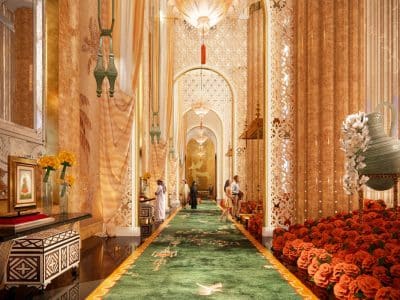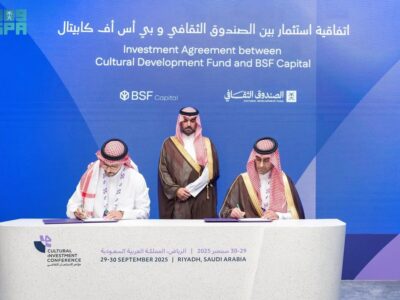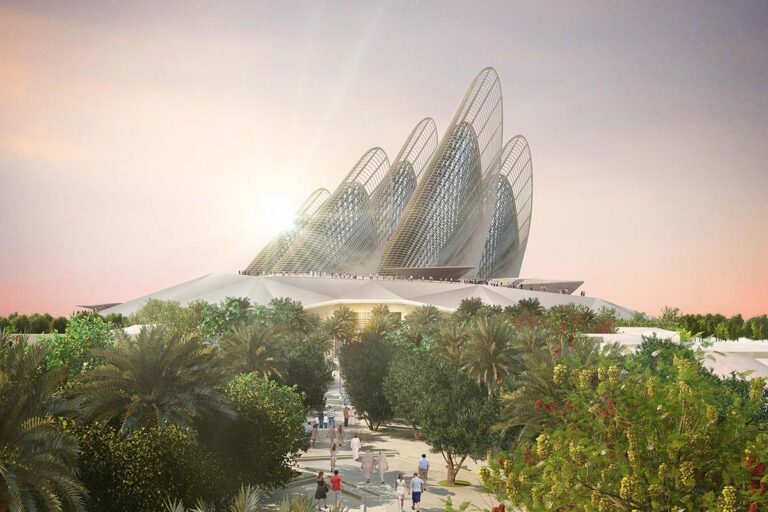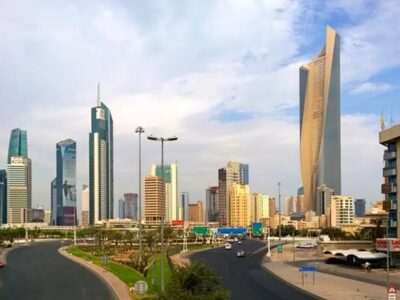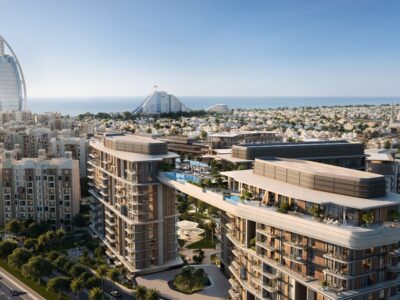Reaffirming its commitment to accessibility for all, Abu Dhabi’s Zayed National Museum – the national museum of the UAE – has become the first cultural institution in the Middle East to adopt the Hidden Disabilities Sunflower programme.
The internationally recognised programme enables individuals with hidden disabilities, such as chronic pain, autism, anxiety and dementia, to discreetly indicate that they may require additional support.
By the time the museum opens to the public in December 2025, Zayed National Museum aims to have up to 80 per cent of its staff across departments fully trained in the programme.
Visitors with hidden disabilities and caregivers will be able to collect a lanyard from the information or ticketing desks, helping staff to identify them as someone who may need support.
Guests who choose to participate in the Hidden Disabilities Sunflower programme can wear the Sunflower lanyard or pin to indicate that they may benefit from extra time or support during their visit. The trained museum staff will also wear Sunflower pins, making them easily identifiable as someone prepared to assist with confidence and care.
Dr Peter Magee, Director of Zayed National Museum, commented: “At Zayed National Museum, accessibility runs through everything we do, from the way we structure our programming, to the material choices we make, the conversations we lead, the structures we build and the curatorial decisions we stand behind.
“It’s not something we add on. It’s something we embed. That’s how we honour the late Sheikh Zayed bin Sultan Al Nahyan’s legacy through action, not just in name. His commitment to compassion, generosity and tolerance continues to inspire our mission to make the museum a space for learning and meaningful connection with the history and heritage of this country for every visitor.”
Andy Faulkner, CEO of Topland, partner of the Hidden Disabilities Sunflower programme, added: “We are proud to support Zayed National Museum in shaping an accessible cultural landmark.
“Every accessibility feature has been co-designed with the communities it serves, ensuring dignity and ease for every visitor. This project is a model for museums across the region and beyond.”
Zayed National Museum also showcases its commitment to accessibility through initiatives embedded across its programming, galleries and visitor services. The museum offers a wide range of accessibility features and services designed to meet the needs of diverse community groups, such as People of Determination, senior Emirati citizens, seniors living with dementia, and families and caregivers.
These include a calm room, quiet hours, wheelchair-accessible routes, accessible lifts, tactile stations, interpretive materials available in multiple formats captioned videos, as well as resources like sensory maps, sensory kits and, visual story guides to support visit planning.
Nassra Al Buainain, Director of Learning & Public Engagement at Zayed National Museum, said: “As we continue to create a museum experience rooted in empathy and understanding, we are proud to be introducing the Hidden Disabilities Sunflower programme, an important step toward making our spaces more welcoming and accessible to all.
“True accessibility begins with listening. In developing our Access Programmes, we have actively listened to the voices of our communities to ensure that our programmes and services are relevant, respectful and genuinely supportive of people’s needs.”
The features at Zayed National Museum are particularly beneficial for neurodivergent visitors, including individuals with autism or sensory sensitivities. The Access Programmes include sensory tours and workshops tailored for visitors with different access needs, using descriptive narration and tactile experiences that bring the museum’s stories and objects to life.
The museum will also offer Emirati sign language tours led by Abu Dhabi’s first fully trained and certified Emirati sign language tour guides. With the support of Zayed Higher Organisation for People of Determination (ZHO), the museum has developed Arabic and English Braille resources, allowing visitors with visual impairments to navigate and explore the museum’s spaces and collections.
Zayed National Museum, located at the heart of Saadiyat Cultural District Abu Dhabi, aims to be the most comprehensive source of information on the country’s history and culture.
